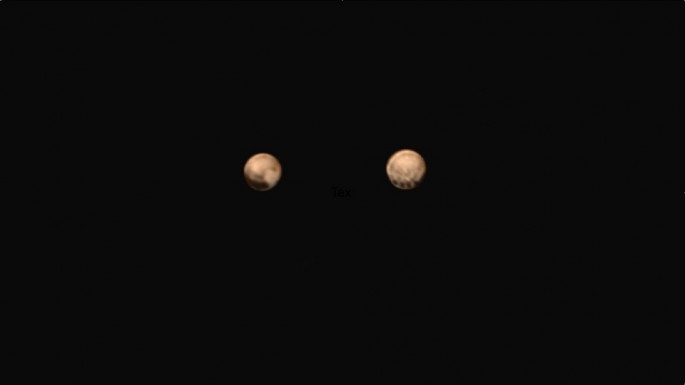New images from NASA's New Horizons spacecraft of Pluto was released on Wednesday as the probe zooms closer to the dwarf planet where the images reveal the startling two faces of the planet.
Judging from the past series of photos pf Pluto, the tiny world seems like a paler version of Mars but upon closer inspection, Pluto reveals a diverse and complex surface studded with unique features. From a distance of 9.5 million miles, the dwarf planet appears to have two very distinct hemispheres where one face is smooth, pockmarked with darker features and the other side appears to possess some bizarre spots measuring 300 miles across, near the equator.
According to principal investigator for New Horizons Alan Stern from the Southwest Research Institute in Colorado, this is a real puzzle since the spots are of unknown origin where the team is excited to find out. Another puzzle is the drastic differences in appearance especially in color of Pluto and its darker moon Charon.
During every series of images captured by New Horizons as it gets closer to the system, Pluto is now unveiling its dirty yellowish, brown hue where Charon seems to possess the same color as our very own moon.
Apart from these exciting differences in color, Pluto and Charon hint at different compositions where the probe also detected frozen methane on Pluto's surface via its infrared spectrometer.
According to New Horizons Surface Composition team leader, Will Grundy, scientists already know that there is methane on the planet since 1976 however these are the first official detections. When the spacecraft comes closer, the methane present on Pluto's surface could reveal differences in composition and presence across the regions.




























